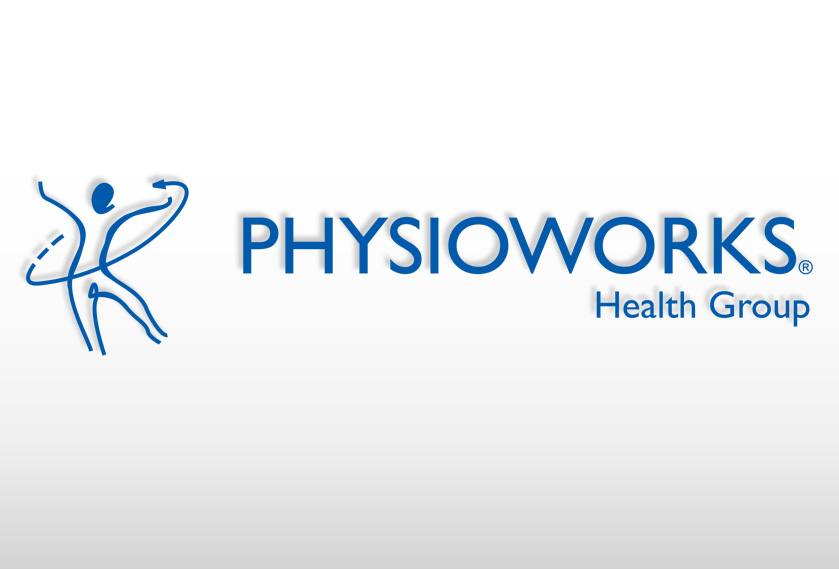Up to 85% of people with Hip Osteoarthritis (OA) are also overweight or obese.
Physioworks Health Group Physiotherapists Andrew Dalwood, Jonathon Dodd & Irwin Kim are participating in the upcoming ECHO Research Study by the University of Melbourne.
The goal of the ECHO Research is to evaluate the effectiveness of physiotherapy rehabilitation exercises combined with a ketogenic very low-calorie diet (VLCD) versus standalone physiotherapy rehabilitation exercises only, in people with Hip Osteoarthritis (OA) who are also overweight.
The rationale for this trial comes from inconclusive evidence regarding weight loss and its effects on pain in people with Hip OA. While we may presume that weight loss would have beneficial effects on pain by decreasing weight/force on joints such as the hip, the truth is that this is yet to be proven.
Hip OA & Knee OA appear to be different. In studies it has been demonstrated that patients with Hip OA tend to normally place less force through the hip joint, while knee OA patients tend to place increased force through the knee joint.
Thus, reducing body weight may not play a huge role in reducing pain in overweight patients with Hip OA. This is what the research study hopes to evaluate.
If weight loss is proven effective for reducing pain in these patients, receiving important advice regarding diet/nutrition may form a valuable adjunct to physiotherapy rehabilitation exercises.
Currently, OA is the worldwide leading cause of pain and disability. In 2012, a $3.75 billion of Australian healthcare funds went to funding hip joint replacements. Given the fact that muscle weakness is common in hip OA, most of the preceding research has been based around strength-related exercise programs.
Among the huge number of different weight loss strategies, the ketogenic VLCD appears to be more effective for short term weight loss than low-fat & low-calorie diets. Thus a ketogenic VLCD was selected for this research.
Subjects also receive guidance & advice regarding how to transition out of ketogenic VLCD and to maintain weight loss following the research.
In 2021, the Australian Physiotherapy Association (APA) released a report “The Economic Value of Physiotherapy” highlighting the cost effectiveness & enhanced quality of life delivered by physiotherapy including the impact of physio on osteoarthritis of the hip & knee. The evidence for the value of physio to the health system is conclusive. If physio is used, instead of other more costly treatments, the patient, the whole health system & the general community will benefit. Thus the importance of ongoing continued research, such as ECHO. For a summary of the Cost v Benefit of physio – view here.
The recruitment of participants in the ECHO Research program will be from March –June 2021, the in-clinic research will then be run, with the data collection end date being January 2022.
Physioworks Health Group Physiotherapists Andrew Dalwood, Jonathon Dodd & Irwin Kim will run the ECHO trial out of our Camberwell & Cranbourne clinics. Give our reception team a call at either of the clinics to find out more: Camberwell – (03) 9889 6611 & Cranbourne (03) 5995 1111.
The team at Physioworks Health Group were previously involved in an ECHO Research Pilot Study in 2018.
The physiotherapy & allied health care team at Physioworks Health Group are constantly striving to improve the level of service and care we provide to our community. Being actively involved in evidence based research; such as the ECHO Research Study, is one way that we are able to continual improve patient care & client service offerings.
References
- Cross M, Smith E, Hoy D, et al. The global burden of hip and knee osteoarthritis: estimates from the Global Burden of Disease 2010 study: BMJ PUBLISHING GROUP; 2014.
- Reyes C, Leyland KM, Peat G, Cooper C, Arden NK, Prieto-Alhambra D. Association Between Overweight and Obesity and Risk of Clinically Diagnosed Knee, Hip, and Hand Osteoarthritis: A Population-Based Cohort Study. Arthritis & rheumatology (Hoboken, N.J.). Aug 2016;68(8):1869-1875.
- Cross M, Smith E, Hoy D, et al. The global burden of hip and knee osteoarthritis: estimates from the Global Burden of Disease 2010 study. Annals of the rheumatic diseases. Feb 19 2014;73:1323-1330.
- Moseng T, Dagfinrud H, Smedslund G, Østera?s N. The importance of dose in land-based supervised exercise for people with hip osteoarthritis. A systematic review and meta-analysis. Osteoarthritis and Cartilage. 10/01/October 2017 2017;25(10):1563-1576.
- Loureiro A, Mills PM, Barrett RS. Muscle weakness in hip osteoarthritis: a systematic review. Arthritis care & research. Mar 2013;65(3):340-352.
- Purcell K, Sumithran P, Prendergast LA, Bouniu CJ, Delbridge E, Proietto J. The effect of rate of weight loss on long-term weight management: a randomised controlled trial. Lancet Diabetes Endocrinol. Dec 2014;2(12):954-962.
- Castellana M, Conte E, Cignarelli A, et al. Efficacy and safety of very low calorie ketogenic diet (VLCKD) in patients with overweight and obesity: A systematic review and meta-analysis. Rev Endocr Metab Disord. Mar 2020;21(1):5-16.







